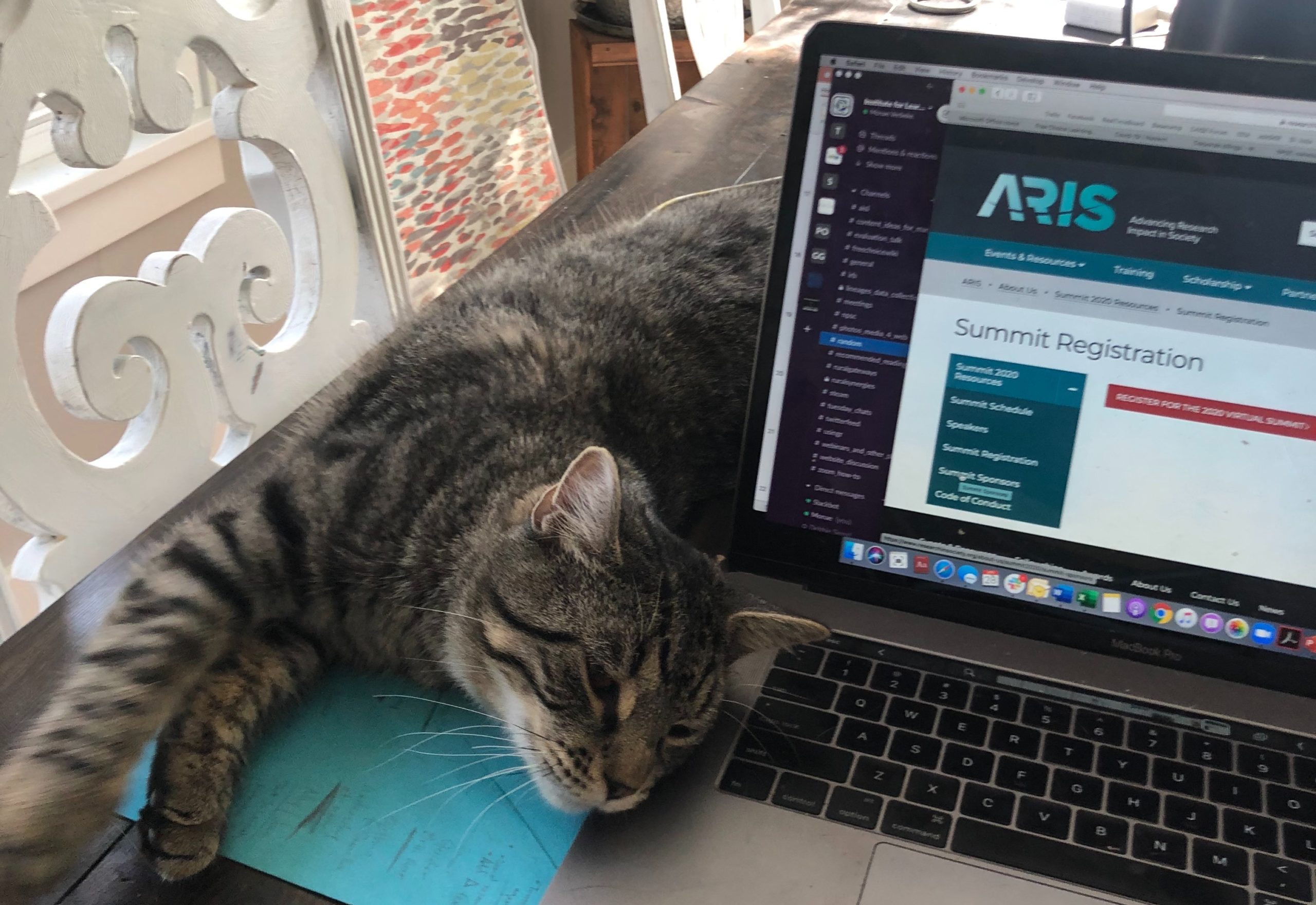
When our community goes digital: reflections on a changing paradigm
I travel to carry out research and evaluation studies – and I travel for conferences and workshops. There’s ScienceTalk, NARST, Advancing Research Impacts in Society (ARIS), Public Communication of Science and Technology (PCST), the Science Events Summit, and Visitor Studies Association Conference (VSA).
Just to name a few of my favorites.
Particularly in the spring and summer travel has been an enjoyable, essential part of my job for many years. As my spring travel season kicked off, so did the coronavirus pandemic. On a flight home from DC in late February when a man coughed, and everyone turned to look at him (and I mean everyone). It was in that moment that I realized our community was headed into uncharted territory. The coronavirus situation was about to force us all to reflect on our daily practices in one way or another, whether conscience or unconscious. For myself, this would mean a change in how I participate in dissemination and professional learning.
As March began to take shape, it became more and more apparent that I would not have the opportunity to visit my British friends while attending the Public Communication of Science & Tech conference nor would I visit Rock Creek National Park to continue our work with the Rock Creek Conservancy. At first, this realization was jarring. How do we continue to support our communities, successfully deliver on the promises we made to our funders, and build our networks? Conferences, and other in-person events, have been central to the way many of us conduct our work – how we network, share our work, and catch-up on what’s going on in the field.
As a self-proclaimed problem solver, this seemed like another problem looking for a unique answer. I just needed to search for it. What I’ve found is a community of inspiring individuals willing to pull together and collaboratively support the future of our community. The cultural sector (including zoos, museums, parks, community centers, science events, national parks, etc.) is one of strength and innovation. In the last two months, I have been attending many unique digital gatherings with colleagues, many of whom I would not have interacted with under normal circumstances.
The speed with which this has happened is astonishing. Individuals stepped up to offer their services and advice to others, while many societies and community groups have banded together to support their members. Groups like ARIS, who quickly pivoted to an online system to hold their annual conference. I was most struck by their efforts to be inclusive. Personal transcribers were provided. Costs were greatly reduced. And multiple ways of engaging were encouraged (cats included!). Everything seemed to be recorded. It was a wonderful, enlightening event – one I’ll continue to reference for the foreseeable future.
Meanwhile, VSA understandably cancelled this year’s conference. Yet, it has continued to experiment with new ways to support the community. Each week the group has held two support sessions for members. On Fridays, members are invited to join an informal discussion group. What I am finding most useful is the support we’re receiving as we share our collective triumphs and frustrations in moving our work online.
Last week, the Committee on Audience Research and Evaluation, in connection with American Alliance of Museums, hosted a group-share session: ‘Facilitating for Engagement and Discussion Online with Gina Navoa Svarovsky’. While I have experience with hosting digital discussions, I decided to attend the session to offer what I’ve learned to others and to hopefully pick up a few new tricks. What I gathered was more than a few new tricks for running digital discussions. I was offered the opportunity to engage with an exceptional group of researchers and evaluators who were thinking strategically about what it means to do our work in this new world.
Each of these conversations (and more!) have inspired me to think creatively about how I continue to proceed in a way that benefits us as a community. To think about how I utilize the resources at my disposal to support the needs of those around me. Ultimately, it is likely that these conversations are indicative of a much deeper change in how we build our field, and how knowledge is circulated within our sphere – and if the experiences I am having are any indicator of how we will continue to work to support each other, then this is an opportunity I am excited to take up.
We would like to invite other problem solvers, and boundary-crossers, to collaborate with us in creating a working group to develop a space for sharing how we are making this professional learning paradigm shift in a smart, responsible, and equitable way. We imagine the space will be a living workspace for sharing lessons learned and imagining what professional learning for the informal science learning field looks like now and in the future. Please join me, and others, on Friday June 5th at 2 pm CT to kick-off this work group.
Cheers,
Director of Evaluation and Senior Researcher
Posted May 26, 2020
